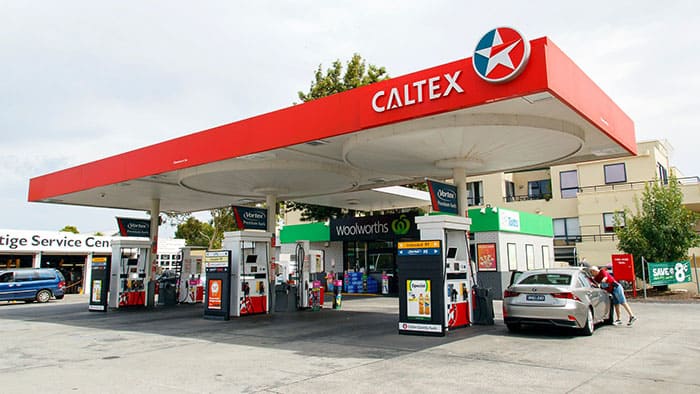
GIC and Charter Hall are buying out the gas station retail as it rebrands
Singapore’s sovereign wealth fund has partnered with Australian property group Charter Hall to buy a 49 percent stake in a portfolio of convenience stores operated by Ampol, Australia’s biggest oil refiner, for A$682 million ($488.9 million).
Ampol, formerly Caltex Australia, said Monday it will retain a 51 percent stake in the 203 freehold convenience stores that it had spun off into an unlisted property trust this week to facilitate the deal.
Upon completion of the transaction, which is expected by year-end, GIC will have an effective 46.55 percent stake in the trust, while Charter Hall will hold 2.45 percent, Charter Hall said in a statement to Mingtiandi.
The transaction, which values the retail assets at A$1.4 billion, comes after Canada’s Alimentation Couche-Tard convenience store chain in April withdrew a proposed A$8.8 billion takeover of Ampol as the COVID-19 pandemic sent the refiner’s fuel profit margins plummeting.
Value in a Volatile Market
“The transaction represents a compelling value in volatile market conditions,” Matt Halliday, managing director and CEO of Ampol, said in a statement.

Matt Halliday, managing director and CEO of Ampol
The convenience store portfolio was identified as an opportunity to unlock the value of the retail assets following a review of Ampol’s nationwide network last year, Halliday said. Besides selling fuel, the outlets sell groceries as well as meals for breakfast, lunch and dinner.
Ampol is rebranding its Caltex Australia petrol stations back to its original Aussie name after US energy giant Chevron terminated its licensing agreement with the refiner late in 2019. Originally established as Australian Motorists Petrol Company in 1936, Ampol merged with Caltex Australia in 1995 with Chevron controlling rights to the Caltex brand.
Stores Leased Back to Ampol
Under the terms of the joint venture, the sites of the convenience stores will be leased back to Ampol, with the weighted average lease expiry (WALE) across the properties at 19.2 years. The initial lease agreements on the sites are for 10 years, followed by multiple five-year extensions, according to Charter Hall.
The trust will receive approximately A$77 million in rental payments from Ampol in the first year. Thereafter, rents will be subject to annual reviews for potential escalation of between two percent and five percent, factoring in inflation.
Ampol said the trust will provide the company a platform to potentially acquire future sites, with these new stores likely to be injected into the investment vehicle over time.
Defensive Assets Amid Pandemic
“This off market transaction follows regular dialogue with the Ampol team over the past two years and reinforces our confidence in the convenience retail sector,” David Harrison, managing director and CEO of Charter Hall, said in a statement. “The extension of our 15-year relationship with GIC further grows the breadth of this multi-sector relationship and reflects our strong market position and continued conviction for long WALE assets with strong underlying investment fundamentals.”

David Harrison, managing director and CEO of Charter Hall
Charter Hall already owns an existing portfolio of 225 convenience stores leased to BP, 55 shopping centers anchored by at least one supermarket and 55 Bunnings large format hardware outlets.
These assets proved “defensive and resilient” through the government imposed lockdowns earlier this year to curb the spread of COVID-19, with its supermarket tenants including Woolworths and Coles, as well as the BP convenience stores, remaining open through government mandated closures of shopping malls and offices, the company said.
Attractive Alternative Investments
Convenience stores around Australian petrol stations have become popular alternative investments for institutional investors seeking assets with long term leases, stable rental income and built-in rental escalation clauses, according to JLL. Between 2016 and 2019, investors invested A$1.8 billion into such assets.
“Convenience-based service stations represent an alternative to the more traditional neighbourhood retail store, yet at a relatively similar price point,” said Fergal Harris, head of capital markets at JLL in Australia. “We are expecting further listed and wholesale activity in the sector over the back half of 2020 and beyond, particularly given the relatively resilient nature of the asset class.”
Official data showed robust growth in supermarket sales across Australia in 2020, with sales of perishable goods climbing 14.4 percent in June from a year ago, while non-perishable goods jumped 12.4 percent in the same period.
“The annual growth reflects a continuation of more food being prepared and consumed at home due to social distancing,” the Australian Bureau of Statistics said in a report last month.
GIC, which has over $100 billion in assets under management, has been among the most active investors in Australia this year.
In June, the firm backed an A$1 billion ESR fund to develop logistics assets in the country, with that deal following soon after the sovereign wealth fund’s January agreement to invest an additional A$366 million into the Dexus Australian Logistics Trust which took its stake in the warehouse investment vehicle to 49 percent.
Leave a Reply